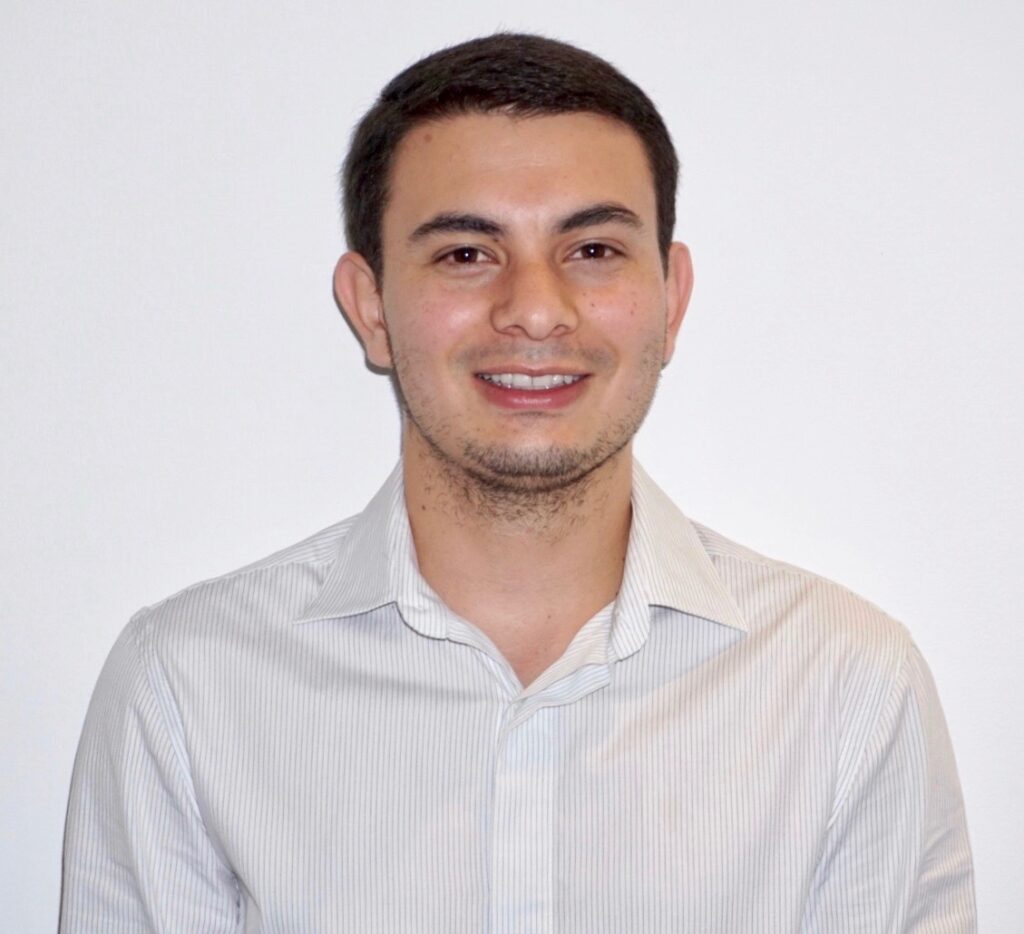Rafael Montenegro Marín
DC 11 - Intein-based logic gates for multiplexed designs
About your project
My project aims to develop biosensors by implementing intein-based logic gates to enable multiplexed designs and fast biosensing in cell-free systems. To do so, we will first characterize an intein toolbox for cell-free systems to then implement intein-based logic gates, and finally demonstrate such logic in biosensing applications.
Main Supervisor: Prof. Dr. Karen Polizzi (ICL)
Co-Supervisor: Prof. Heinz Koeppl (TUDa)
Supervisor: Prof. Heinz Koeppl (TUDa)
Supervisor: Dr. Alexander Pelzer (BRAIN)

About you
I am a biotechnologist from Costa Rica with a master’s in synthetic biology, aiming to work on synthetic biology applications. First, I obtained my bachelor’s degree in Biotechnology Engineering at the Costa Rican Institute of Technology (TEC) in 2018. Afterward, I worked as a research assistant for 2 years in Costa Rica. More precisely, I worked in environmental microbiology by studying the use of Pseudomonas putida for bioremediation purposes. Since my bachelor’s, and particularly after participating in iGEM, I decided to pursue a career in synthetic biology. Therefore, I subsequently moved to France, where I undertook my master’s in Systems and Synthetic Biology at Paris Saclay University from 2020 to 2022. For my master’s internship, I worked on implementing a genetic tool to study translation elongation cost in heterologous protein expression to improve synthetic circuit genetic design. This genetic tool included inteins as part of its design, which was a critical motivation to work on them for my Ph.D., particularly their protein splicing activity, which makes them unique tools with incredible biotechnological potential.
During my master’s, I discovered myself an academic passion for the biological design behind synthetic biology applications. Consequently, I aim to apply biological design and engineering principles to synthetic biology applications that could reach the biotechnological field. I believe the SYNSENSO network is a unique opportunity to do research in synthetic biology within a multidisciplinary and collaborative environment while beneficiating from feedback from both academic and industrial partners. I look forward to collaborating within the network and designing biosensors for cell-free synthetic biology, an innovative approach within a promising and outgrowing field.
